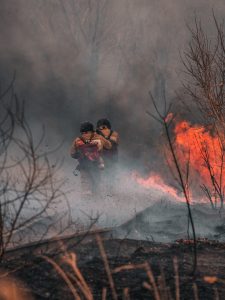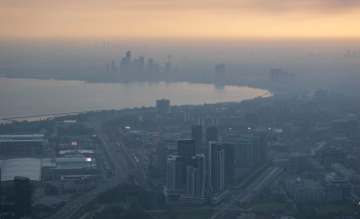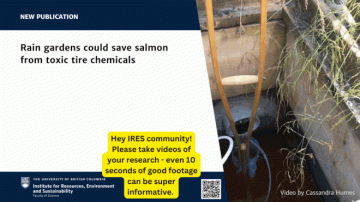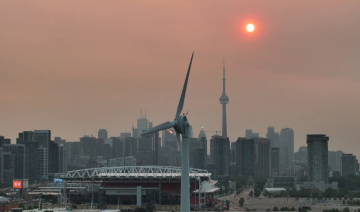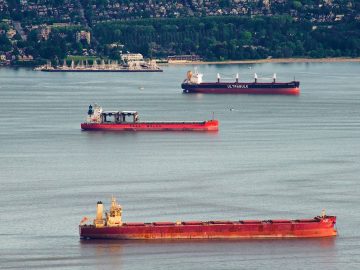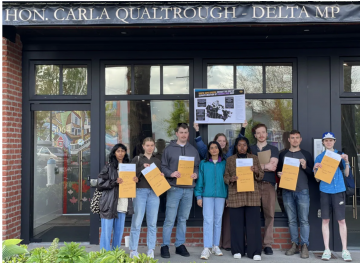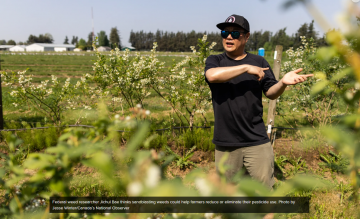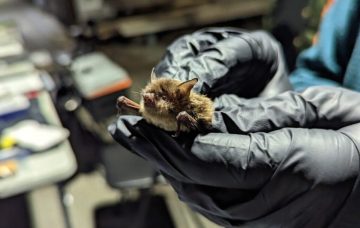Anticipating Canada’s crisis response decisions can save critical time in future wildfire seasons
Today, both Canada and the United States are dealing with unprecedented levels of smoke from wildfires. And while forest management practices and climate change are partly to blame, so is the failure of governments to give people the right tools to make effective proactive crisis decisions.
IRES’s Robin Gregory is featured by breaking down preparation to 3 crucial factors. (Featured image:
mikhail serdyukov/ unsplash)
Canada and U.S. cooperation needed to solve our wildfire crisis
IRES professor Robin Gregory is featured in the Globe and Mail as he argues that reducing the threat and damage from wildfires can happen – but not without implementing the well researched forest management policies that are co-ordinated among all levels of government.
Rain gardens filter out tire toxin lethal to salmon, B.C. study shows
A study co-authored by Timothy Rodgers, Amanda Giang, and civil engineering researchers found that specially designed gardens could reduce the amount of a toxic chemical associated with tires entering our waterways by more than 90 per cent.
Vulnerable groups need more support with poor Toronto air quality, say climate experts
IRES professor Amanda Giang discusses how low income, immigrant populations are more exposed to air pollution and many lack the resources to protect themselves.
The Shipping Climate Crunch – We count on goods from around the world. But they come with a price.
The global shipping industry — including those ships at the Burrard Inlet — is making decisions right now that will determine whether it helps or hurts efforts to meet climate change goals, say IRES researchers Imranul Laskar and Amanda Giang in the Tyee
These young Canadians are banging down the government’s door asking for climate jobs
Manvi Bhalla and a group of peers deliver mock job applications to the constituency office of Carla Qualtrough. Their message is clear: young people want green jobs, and those jobs could help Canada meet its climate commitments.
Forget herbicides. Sandblasting will whack those weeds
Claire Kremen discusses the need for substantive changes to accomplish agricultural sustainability and to think about the environmental costs of simplified solutions and systems
Nose for trouble: B.C. scientists brace for a deadly bat fungus
Aaron Aguirre discusses the deadly bat fungus that has up to a 95% mortality rate and why we should care about it.
Opinion: We must eliminate persistent, bio-accumulative and toxic plastics before it’s too late
Dr. Gunilla Öberg along with other experts shares her opinion that categorizing harmful plastics as PBT pollutants can help governments to control, or eliminate altogether, the creation and usage of toxic or otherwise harmful plastics. They hope the UN will make the right choice.

